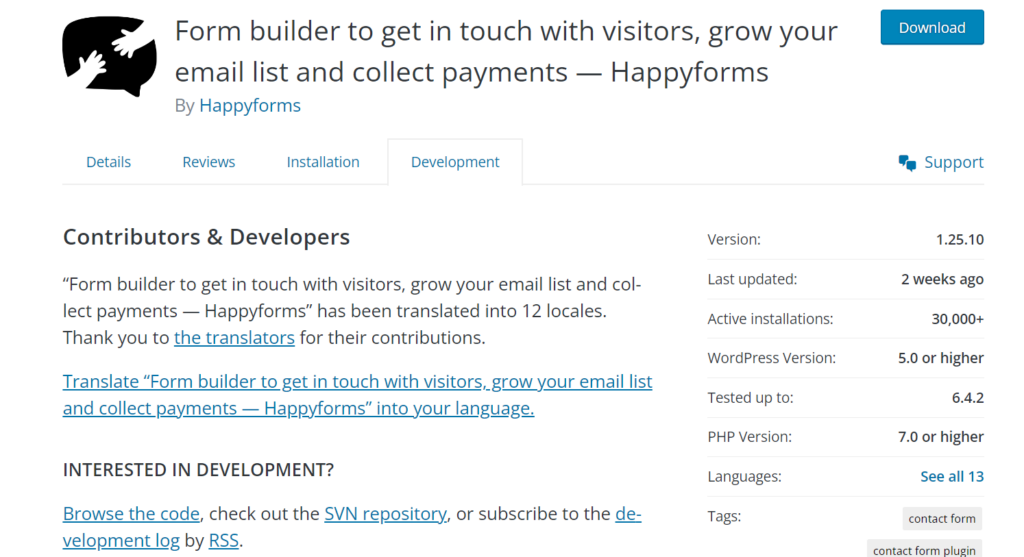When setting up a WordPress website, the natural next step is deciding which plugins to install. A common approach is to quickly search and go for the first result. However, this can lead to issues in the long run, as you might end up choosing the wrong plugin, causing headaches and additional costs.
In this article, we provide a list of things to help you steer clear of such situations. It’s crucial to remember the right approach when choosing plugins for your WordPress website. Given their significant role, always strive to select the best plugin, even if it adds just a small feature to your WordPress site.
Let’s get started and discover what to avoid when choosing plugins for your WordPress website, so you won’t end up with the wrong ones.
Don’t rush
Discovering a plugin with a specific function is quite straightforward; you can download, install, and activate it in just a few minutes. However, this approach can pose potential issues if you end up with the wrong plugin. While it may seem efficient to quickly install and activate a plugin to add a feature to your WordPress website, this rush is the first thing to avoid. Hastiness could lead to unfavorable consequences for your website. Instead, take your time in selecting the right plugin. Once you feel confident, make the decision.
Furthermore, even with free plugins, these situations are inevitable. Refraining from hasty decisions when choosing a plugin, even if it’s free, can bring significant benefits in the long run. Opting for the right plugin initially means that when upgrading to a premium version, you won’t need to choose a different plugin. Instead, you can simply upgrade the one you’re already familiar with and have been using.
Always do your own research
When you have the time to find the right plugins, your first step should be conducting your own research. Don’t rely solely on one resource; it might provide a one-sided opinion. Explore various blogs to gather different perspectives. This approach gives you better options and insights into choosing the right plugins.
Furthermore, even if you already have a biased opinion about a plugin, it’s advisable to conduct your own research. Occasionally, there are hidden gems among plugins that you might overlook. Recommendations from others may not always lead you to the best options, and there could be better alternatives that you’re not aware of. Doing your own research in these scenarios is beneficial, ensuring you gain diverse perspectives on the plugins you’re considering.
Visit and join forums
Visit trustworthy forums that discuss WordPress plugins. Explore diverse opinions on a plugin’s functionality and actively participate in the discussions. This can be incredibly helpful, especially when you have specific questions about a plugin or a particular feature that isn’t easily testable. Some forum members may offer tailored recommendations based on your needs. Additionally, you might find experts who are well-versed in the plugin, and in certain cases, even the developers may be present in the forum to address your queries, providing valuable assistance.
Read and understand plugin details
Thoroughly inspect the plugin you plan to use, including its limitations and the steps needed to achieve the desired results for proper functionality. On the specific page dedicated to the WordPress plugin, you’ll find an abundance of details, including the last update, version information, changelogs, and other pertinent information meticulously provided. Take the time to understand the purpose of each field to gain a comprehensive understanding of the plugin you’re considering. From genuine testimonials to the latest update details, every piece of information proves to be valuable! Avoiding the wrong plugin to be used on your WordPress website.

Compare top plugin features
This approach is particularly beneficial if you’ve already conducted thorough research and are well-versed in the plugins that offer the specific features you need. It’s especially useful when considering premium plugins. Create a top-three list of plugins and compare them meticulously. By doing this, you can easily discern which plugin stands out as the better choice. Often, you may find that you only need a particular feature that one plugin offers, setting it apart from others, or vice versa.
Do some testing
When you have some extra time and have shortlisted various plugins, a great way to assess their effectiveness is by installing them on your development website. This approach helps identify potential issues with bad plugins, such as conflicts in code, slowdown of website performance, and evaluating the user-friendly interface. This hands-on testing on a development site ensures that you can address any issues before implementing the plugins on your live or production website.
Conclusion
Choosing a plugin has become effortless with the vast array available for WordPress. Adding a feature to your website is a simple process of downloading, installing, and activating a plugin. However, the ease of this process doesn’t negate the potential consequences of overlooking certain factors in the selection process. To prevent the installation of the wrong plugin on your WordPress website, it’s crucial to take some extra time and be aware of plugins to avoid. The key steps include avoiding haste, dedicating time to research, reading forums, thoroughly reading plugin details, comparing top plugins, and conducting testing. These guidelines are easily remembered and can significantly contribute to a more informed and successful selection of WordPress plugins.